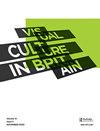Power Politics and the Representation of Poverty: The Nottingham Community Protection #Givesmart Campaign
Q2 Arts and Humanities
引用次数: 0
Abstract
In March 2016 Nottingham Community Protection launched its anti-begging Campaign #givesmart. It featured a series of posters which encouraged those coming into contact with beggars to #givesmart; and ‘giving smart’ meant not giving to those begging on the streets of the city. The immediate general response was to conflate the issue of begging and deviancy with homelessness, and subsequent debate focused on the negative representation of those experiencing poverty, even though Nottingham City Council denied that this had been the original remit of the campaign. After receiving complaints, the Advertising Standards Authority took onboard this (mis)reading of the images, banning four out of the five posters in their original form, claiming that they did represent the homeless in a derogatory manner. This case-study explores the launch of the poster campaign, deconstructs what was arguably the most problematic of the five posters, and situates the ruling of the Advertising Standards Authority within a socio-political context in which poverty is framed and understood in contemporary Britain.权力政治与贫困的表现:诺丁汉社区保护#Givesmart运动
2016年3月,诺丁汉社区保护组织发起了#givesmart反乞讨运动。它以一系列海报为特色,鼓励那些接触乞丐的人#givesmart;“聪明地给予”意味着不给那些在城市街道上乞讨的人。立即的普遍反应是将乞讨和离经叛道问题与无家可归混为一谈,随后的辩论集中在贫困者的负面代表性上,尽管诺丁汉市议会否认这是该运动的最初职权范围。在收到投诉后,广告标准管理局接受了对这些图片的这种(错误)解读,禁止了五张海报中的四张,声称它们确实以贬损的方式代表了无家可归者。本案例研究探讨了海报运动的发起,解构了五张海报中可以说是最有问题的一张,并将广告标准管理局的裁决置于当代英国贫困的社会政治背景下。
本文章由计算机程序翻译,如有差异,请以英文原文为准。
求助全文
约1分钟内获得全文
求助全文
来源期刊

Visual Culture in Britain
Arts and Humanities-Visual Arts and Performing Arts
CiteScore
0.60
自引率
0.00%
发文量
1
 求助内容:
求助内容: 应助结果提醒方式:
应助结果提醒方式:


